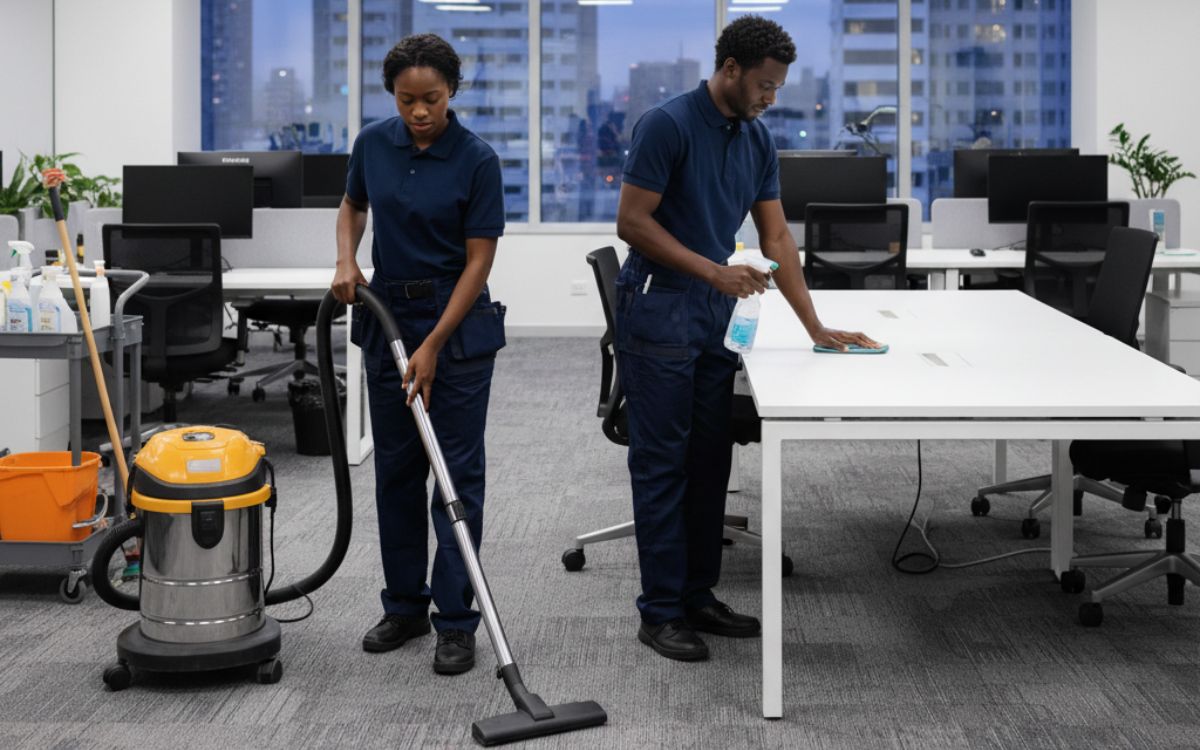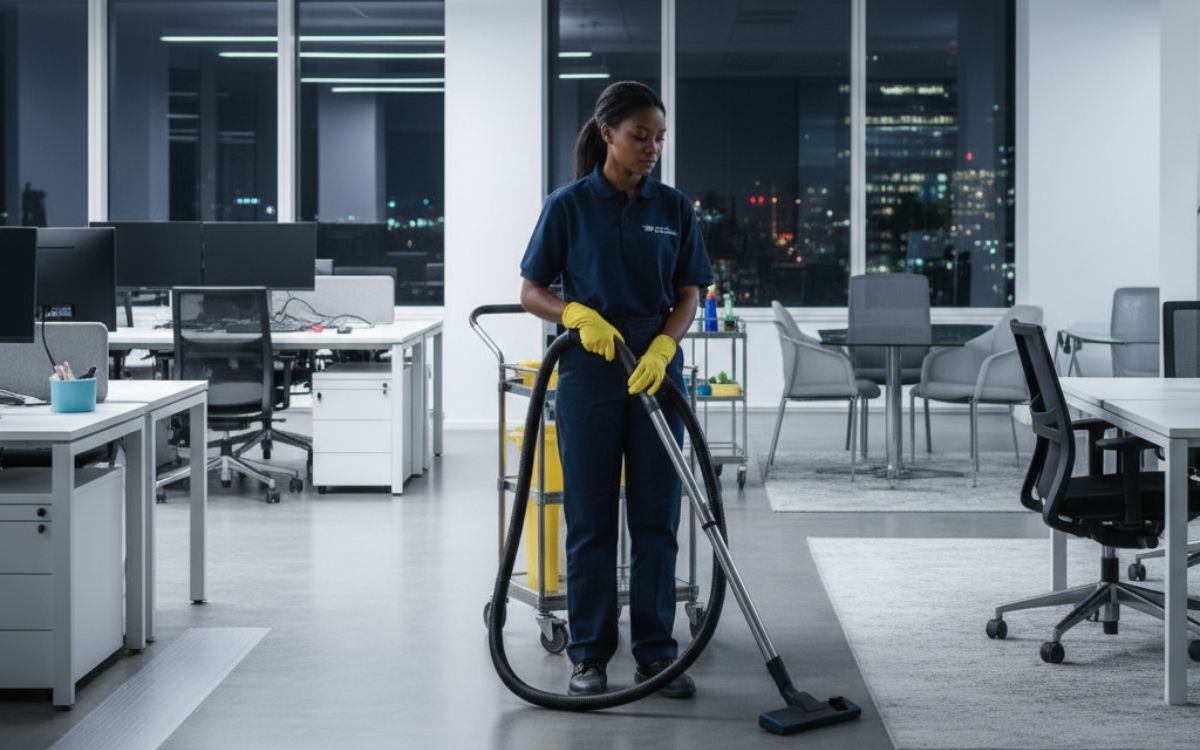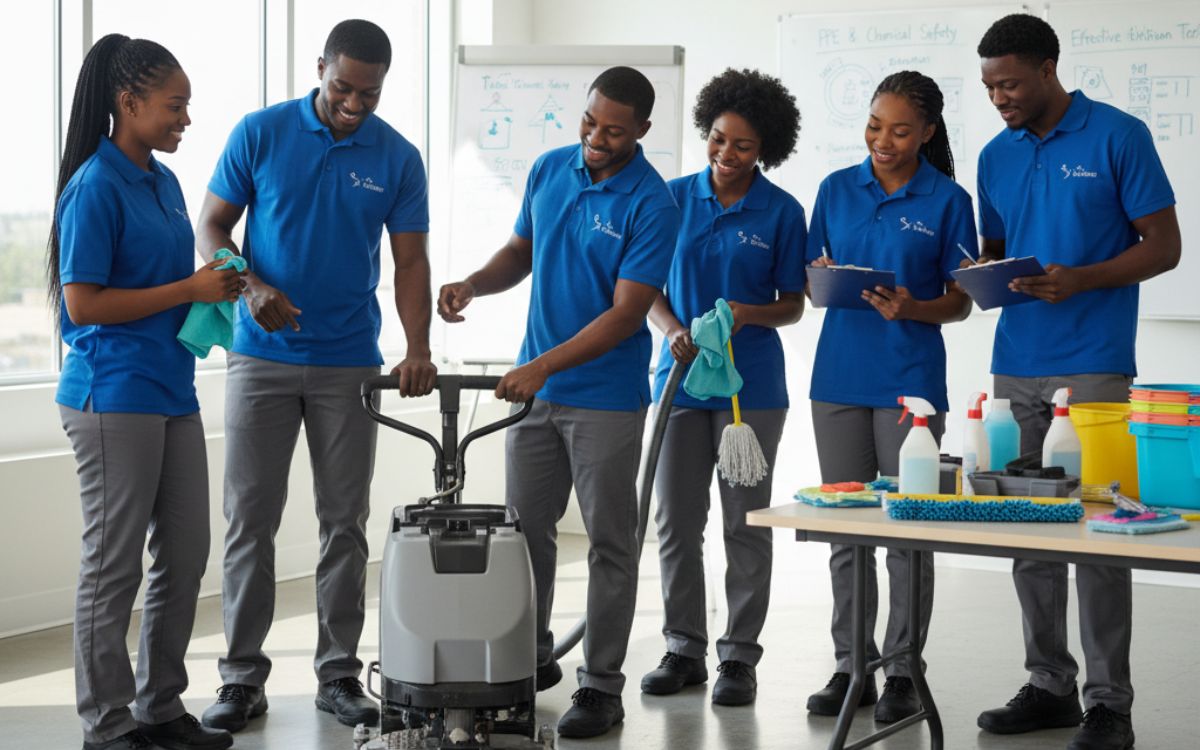In any healthcare setting, from small clinics to large hospitals, cleanliness isn’t all about appearances. It’s a critical factor in patient safety and overall public health. Proper hospital cleaning training is the foundation of this effort, ensuring a sterile and safe environment for everyone. A clean space prevents the spread of infection and supports the healing process.
However, cleaning a hospital presents unique challenges compared to a typical office or industrial site. You’re dealing with sensitive areas, strict hygiene protocols, and the constant risk of contamination. It requires specialised skills and a deep understanding of health and safety standards. As a result, generic training for commercial spaces simply doesn’t cut it. This article will explore why this level of training is non-negotiable and what goes into a comprehensive cleaning programme for healthcare facilities.
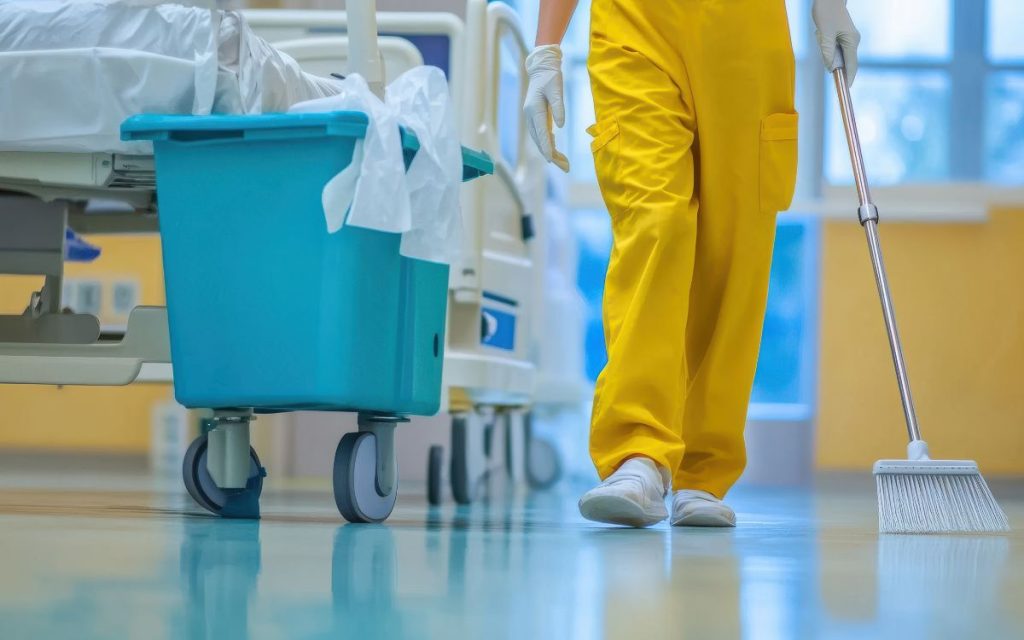
The Role of Cleaning Training in Healthcare
Specialised training for healthcare cleaning staff turns a cleaning team into a crucial line of defence against illness and risk. This approach to cleanliness directly impacts patient outcomes and the reputation of the entire facility. Below we outline the three pillars that make up the role of specialised training.
Infection Prevention and Control
In a hospital, the biggest threat is often invisible. Healthcare-Associated Infections (HAIs) are a serious risk to patient safety. These infections can cause serious complications and even death. A well-trained cleaning team uses specific cleaning SOPs for healthcare to effectively break this chain of infection.
Cleaning staff must understand different pathogens and how to get rid of them. This includes knowing which industrial-grade cleaning chemicals and disinfectants to use on specific surfaces. They must also use the right tools, such as professional-grade vacuum cleaners and industrial floor scrubbers. Consistent and careful cleaning of high-touch surfaces like doorknobs and bed rails is crucial. This diligence is all part of effective infection control training.
Ensuring Patient and Staff Safety
Proper cleaning also minimises immediate physical risks. For example, staff trained in safety protocols know how to handle spills correctly to prevent slips and falls. They also know where to place equipment so it doesn’t become a tripping hazard. This protects both patients and staff from unnecessary accidents.
Learning correct waste management is another vital part of the process. Staff learn how to properly dispose of bio-hazardous materials to protect themselves and others. This includes handling sharp items and contaminated waste safely. Ultimately, a visibly clean and hygienic environment creates trust and confidence. It shows patients and visitors that their well-being is a top priority.
Regulatory Compliance and Risk Management
Healthcare facilities in South Africa must follow strict health and safety standards. There are specific regulations for sanitation and infection control. Proper cleaning certification ensures that a facility meets these legal requirements. It also helps them avoid fines and legal problems.
By investing in accredited cleaning training, a facility protects itself from risk. This focus on compliance also builds a stronger reputation in the industry.
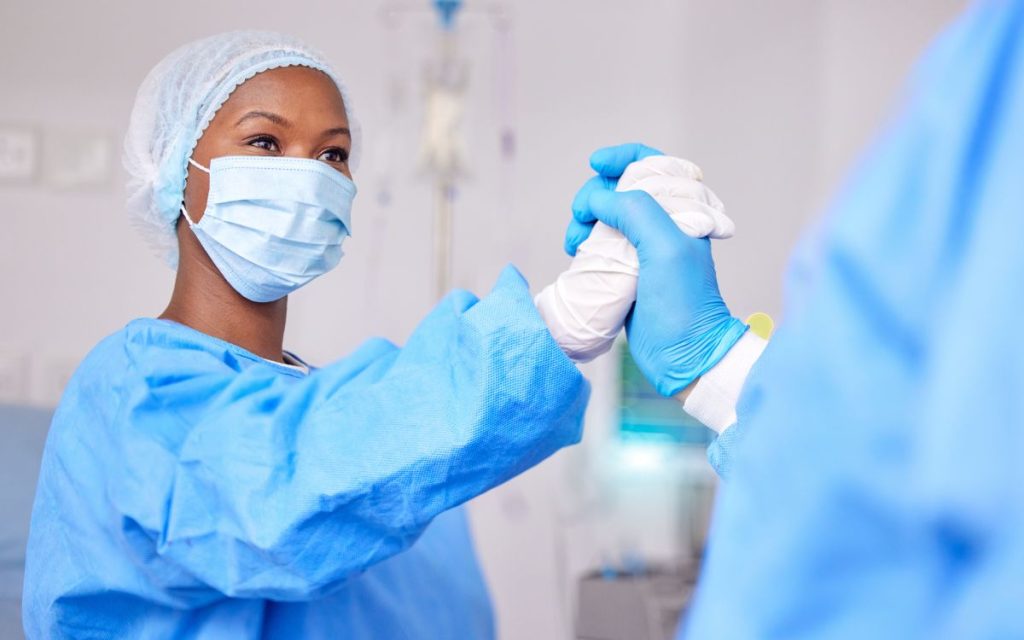
What Hospital Cleaning Training Involves
Core Curriculum and Practical Skills
A comprehensive hospital cleaning course provides a foundational understanding of infection control and safety. Trainees learn about different types of infections and how they are transmitted.
This knowledge helps them stop the spread of germs before it starts. The training includes specific protocols for high-risk areas, for example, how to sanitise operating theatres and patient rooms.
The curriculum also focuses on practical skills, including:
- Understanding different types of infections and how they are transmitted.
- Protocols for cleaning and sanitising specific areas like operating theatres, patient rooms, and laboratories.
- Safe and effective use of specialised equipment and commercial-grade chemicals.
- Correct use and disposal of Personal Protective Equipment (PPE) to protect the cleaner.
- Proper waste segregation and disposal procedures.
- Maintaining air quality through effective duct and vent cleaning.
Specific Training Programmes
To prove a high level of skill, cleaning professionals can earn different certifications. These courses show that a person has received accredited cleaning training and has the necessary skills for a healthcare environment. Examples of these courses include:
- Hygiene and Cleaning Services NQF Level 1
- Specialised Hygiene and Cleaning Services NQF Level 2
- Occupational Qualification Commercial Cleaner Level 1
- Hygiene and Cleaning Training
- Green Cleaning Training
Tailored and Ongoing Training
A one-size-fits-all approach to cleaning training is not effective. The best programmes offer a customised training plan based on a hospital’s specific needs. This ensures that the training is highly relevant and addresses a facility’s unique challenges.
A professional cleaning company also provides continuous training and refresher courses. This keeps staff updated on new cleaning technologies and best practices, and ongoing training is essential for maintaining high standards. It ensures that the cleaning team can adapt to new regulations or pathogens.
The training includes both practical, hands-on sessions and theoretical, accredited cleaning training. These courses often lead to a formal cleaning certificate. This mix of practical and theoretical learning guarantees a highly skilled and knowledgeable cleaning workforce.
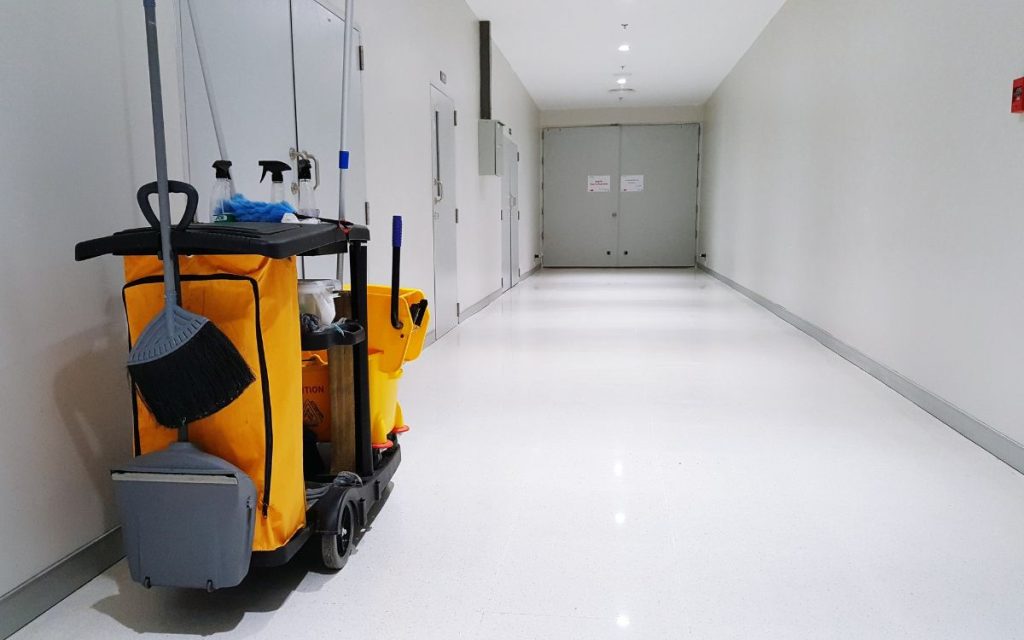
Securing Your Facility’s Future
In the healthcare industry, professional cleaning training is an absolute necessity. It is the best way to ensure patient and staff safety and meet strict compliance standards. A well-trained cleaning team is an invaluable asset. They protect against unseen dangers like Healthcare-Associated Infections (HAIs) and help to maintain the facility’s reputation.
By investing in specialised training, you are taking a proactive step toward operational excellence. It is a decision that reduces risk and builds confidence with everyone who uses your space.
Partner with the experts to get your team trained properly. Contact us today for a free quote on our specialised cleaning training programmes and ensure your facility operates at the highest level of hygiene and safety.


